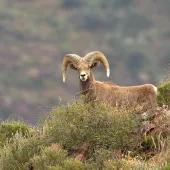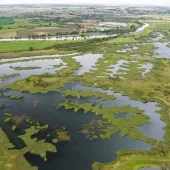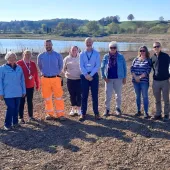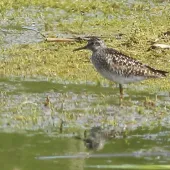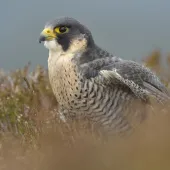Rare birds breeding at Cumbrian quarry
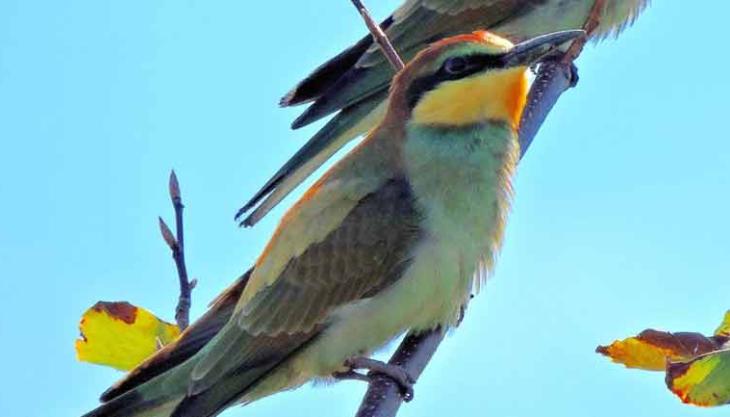
Two pairs of colourful bee-eaters currently raising chicks at Hanson UK’s Low Gelt Quarry
TWO pairs of rare bee-eaters – one of Europe’s most striking and beautiful birds – have set up home and are raising chicks at a quarry in Cumbria.
Normally found nesting in southern Europe, bee-eaters are a very rare breeding bird in the UK, although visits have increased in recent years, prompting speculation of colonization.
Last year two pairs successfully raised chicks on the Isle of Wight, and prior to this bee-eaters nested in Herefordshire in 2005, Co. Durham in 2002 and Sussex in 1955.
The Cumbria bee-eaters are residing at Hanson UK’s Low Gelt sand quarry, near Brampton, where they have made nests by burrowing tunnels in the quarry banks. They were discovered by the quarry’s foreman who noticed the colourful birds flying among the site’s colony of nesting sand martins.
Hanson UK alerted the RSPB which quickly set up 24-hour nest-protection programme in June. Bee-eaters are a schedule 1 species, which means that intentional or reckless disturbance of their nests is a criminal offence.
Mark Thomas, from the RSPB, said: ‘Bee-eater sightings have really been on the increase in recent springs and we’re delighted to confirm they are breeding in the UK for the second consecutive summer. Pushed northwards by climate change, it is highly likely that these exotic birds will soon become established visitors to our shores thanks to partnerships like this one with Hanson.’
Hanson UK’s senior sustainability manager, Martin Crow, said: ‘We often have to cordon off areas in our quarries where sand martins and little ringed plovers are breeding, but a bee-eater sighting was a surprise to us all. Great credit goes to the employees at Low Gelt for recognizing and protecting these birds.’
Although access to Low Gelt Quarry is strictly prohibited, the RSPB has set up a viewpoint on the perimeter of the site, offering visitors excellent views of the birds. Parking is available next to the quarry for a small charge and RSPB staff will be on hand daily from 8am to 8pm until the birds leave at the end of the summer.



